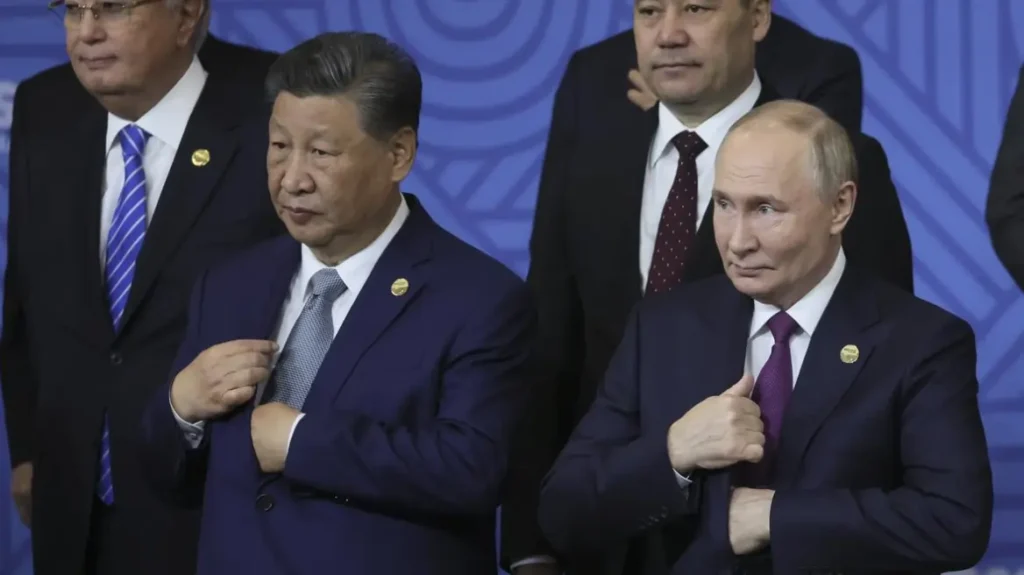Introduction: A High-Stakes Diplomatic Encounter
In a significant move that reinforces growing geopolitical ties, Chinese President Xi Jinping will embark on an official visit to Russia from May 7 to 10, 2025, at the invitation of Russian President Vladimir Putin. The visit coincides with Russia’s Victory Day celebrations on May 9, marking a powerful symbol of unity between the two global powers.
The Kremlin confirmed the visit on Sunday, May 4, highlighting a packed diplomatic agenda that includes high-level bilateral talks, strategic agreements, and participation in commemorative events.
Xi Jinping to Join Victory Day Parade in Moscow
Victory Day, one of Russia’s most important national holidays, commemorates the Soviet Union’s victory over Nazi Germany in World War II. This year, President Xi will stand alongside Vladimir Putin during the grand Victory Day Parade in Moscow, underlining China’s political and symbolic support.
While traditionally a moment of Russian pride and military strength, the presence of Xi Jinping this year is being viewed as a powerful message to the West amid continued tensions over the Russia-Ukraine war and Western sanctions.
Deepening China-Russia Strategic Ties
The Kremlin’s official statement emphasized that both leaders will discuss:
- “Further development of relations of comprehensive partnership and strategic interaction”
- Key international and regional issues
- Signing of multiple bilateral agreements
This marks Xi Jinping’s third visit to Russia since the start of the Ukraine conflict in 2022, reflecting Beijing’s unwavering support for Moscow. Though China claims neutrality in the war, its continued trade with Russia—including supplying components used in military production—has drawn criticism from the West.
The Growing Economic Alliance Amid Sanctions
With Russia heavily sanctioned by the U.S. and EU, its economic dependency on China has significantly grown:
- Energy Shift: Russia has rerouted most of its energy exports toward China.
- Military Supply Chains: Chinese companies now supply essential high-tech parts for Russia’s defense sector.
- Trade Expansion: Bilateral trade between the two nations has soared to record levels since 2022.
This visit will likely include further agreements to bolster these economic and technological partnerships.
A History of Recent Diplomatic Engagements
President Xi’s visit continues a trend of frequent high-level exchanges between the two nations:
- March 2023: Xi’s first state visit to Russia post-invasion
- October 2023: Putin’s visit to Beijing
- May 2024: Putin’s first trip abroad in his new presidential term—to China
- July 2024: A bilateral meeting in Kazakhstan
These frequent interactions reflect not just diplomacy, but a deep personal rapport between the two leaders, often seen smiling and shaking hands in official photos.
Tensions with Ukraine Over Victory Day
As the Kremlin prepares for Victory Day, tensions with Ukraine are running high. On Saturday, Ukrainian President Volodymyr Zelenskyy rejected Russia’s proposed 72-hour ceasefire, arguing that Moscow could use the event for staged provocations. He further warned foreign dignitaries, including Xi, about the lack of safety guarantees around May 9.
Russia, in turn, accused Zelenskyy of threatening international guests and politicizing a national holiday.
Why This Visit Matters for the World
Xi Jinping’s presence in Moscow sends a clear geopolitical signal:
- China stands by Russia, despite Western efforts to isolate the Kremlin.
- The East is consolidating power, with the China-Russia bloc acting as a counterbalance to Western alliances.
- Global diplomacy is shifting, as countries like India, Brazil, and South Africa—key BRICS members—watch closely.
In a world increasingly divided between Western democracies and Eastern autocracies, this visit might be more than symbolic—it could be a defining moment for 21st-century global politics.
Conclusion: Unity Amid Conflict
As Xi Jinping lands in Moscow for a highly anticipated visit during Victory Day 2025, the world is reminded that alliances matter more than ever. Whether viewed as an act of solidarity or a challenge to the Western order, this diplomatic move has the power to reshape narratives, deepen economic interdependence, and redefine international power structures.
Stay tuned for live updates on the visit, key agreements, and geopolitical reactions from around the world.

